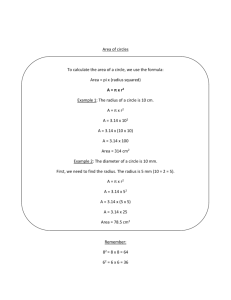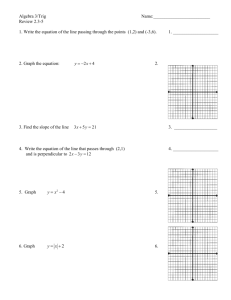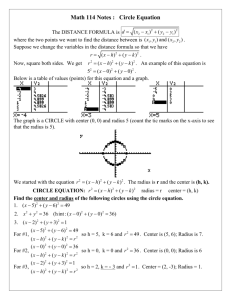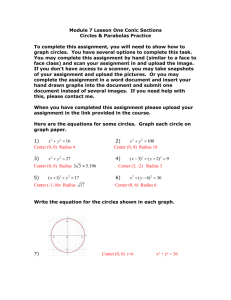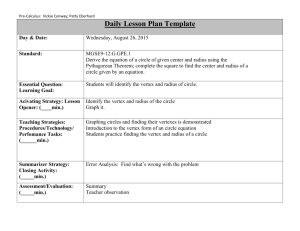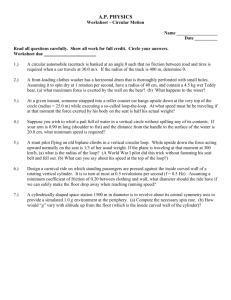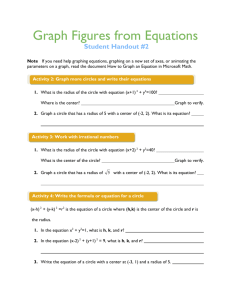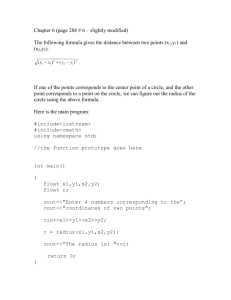Chapter 9 Objects and Classes
advertisement
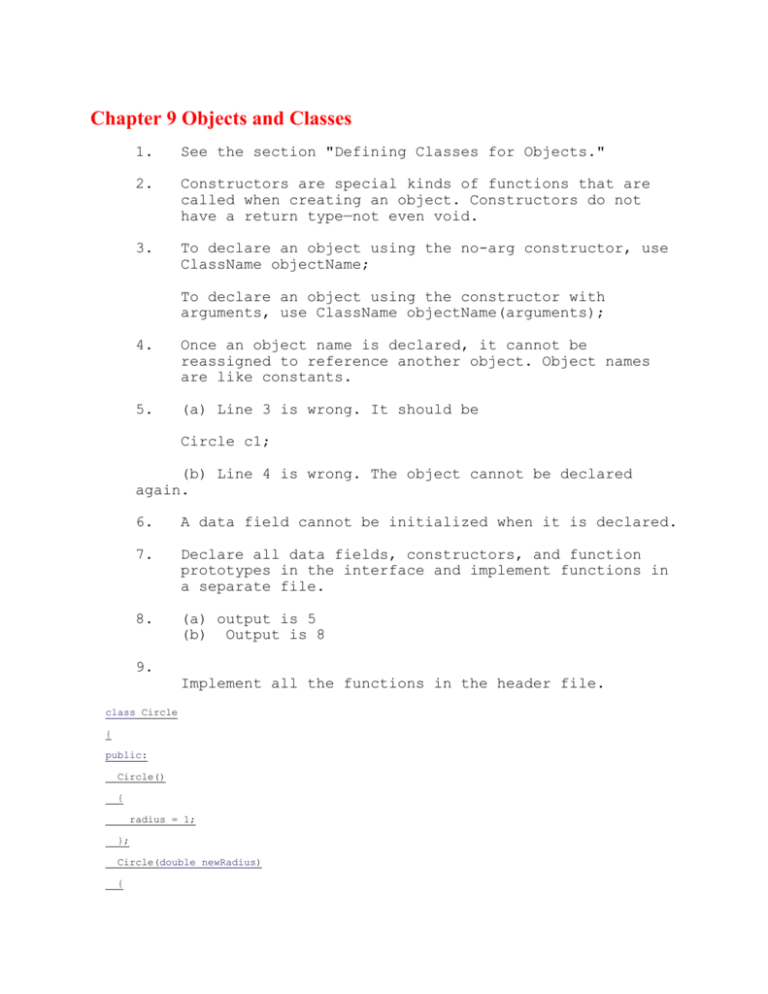
Chapter 9 Objects and Classes
1.
See the section "Defining Classes for Objects."
2.
Constructors are special kinds of functions that are
called when creating an object. Constructors do not
have a return type—not even void.
3.
To declare an object using the no-arg constructor, use
ClassName objectName;
To declare an object using the constructor with
arguments, use ClassName objectName(arguments);
4.
Once an object name is declared, it cannot be
reassigned to reference another object. Object names
are like constants.
5.
(a) Line 3 is wrong. It should be
Circle c1;
(b) Line 4 is wrong. The object cannot be declared
again.
6.
A data field cannot be initialized when it is declared.
7.
Declare all data fields, constructors, and function
prototypes in the interface and implement functions in
a separate file.
8.
(a) output is 5
(b) Output is 8
9.
Implement all the functions in the header file.
class Circle
{
public:
Circle()
{
radius = 1;
};
Circle(double newRadius)
{
radius = newRadius;
}
double getArea()
{
return radius * radius * 3.14159;
};
double getRadius()
{
return radius;
};
void setRadius(double newRadius)
{
radius = newRadius;
};
private:
double radius;
};
10.
(a) Line 4 should be Circle *p = &c1;
(b) Line 4 should be Circle *p = new Circle()
11.
To create a dynamic object, use the new operator.
To delete an object, use the delete operator.
12.
(1) Chicago AtlantaComputer Programming
(2) Chicago AtlantaProgram
(3) Chicago AtlantaNEW
(4) Chicago AtlantaNNN
(5) NNN
(6) Program
(7) NEW
(8) NNN
(9) C
(10) 15
(11) 15
(12) 15
(13) Ccago Atlanta
(14) 0
(15) -1
(16) Chicago Atlanta
(17) ago Atla
(18) ago Atlanta
(19) 8
(20) 11
(21) ChNEWo Atlanta
(22) ChicNEWago Atlanta
(23) ChicagNNNNNNNNo Atlanta
(24) false
13.
(1) s1 is empty
(2) have FGHIJKLMN
(3) s1 is Computer Programming
and s2 is I have a dream
14.
(1) I
(2) s1 becomes “Computing Programming”
(3) s1 becomes “C++ Computer Programming”
(4) Computer ProgrammingC++
(5) true
(6) true
(7) false
(8) false
(9) false
(10) true
15. Accessor function is for retrieving private data value
and mutator function is for changing private data value. The
naming convention for accessor function is getDataFieldName() for
non-boolean values and isDataFieldName() for bool values. The
naming convention for mutator function is
setDataFieldName(value).
16. Two benefits: (1) for protecting data and (2) for easy
to maintain the class.
17.Yes.
18
// Construct a circle object
Circle::Circle(double radius)
{
this->radius = radius; // or (*this).radius = radius;
}
19.In C++, you can pass an object to a function by value, by
reference, or by reference via a pointer.
20. myCount.count is 0 times is 0
21. myCount.count is 100 times is 0
22. myCount.count is 100 times is 100
23. string strings[10];
24.
Atlanta
Dallas
